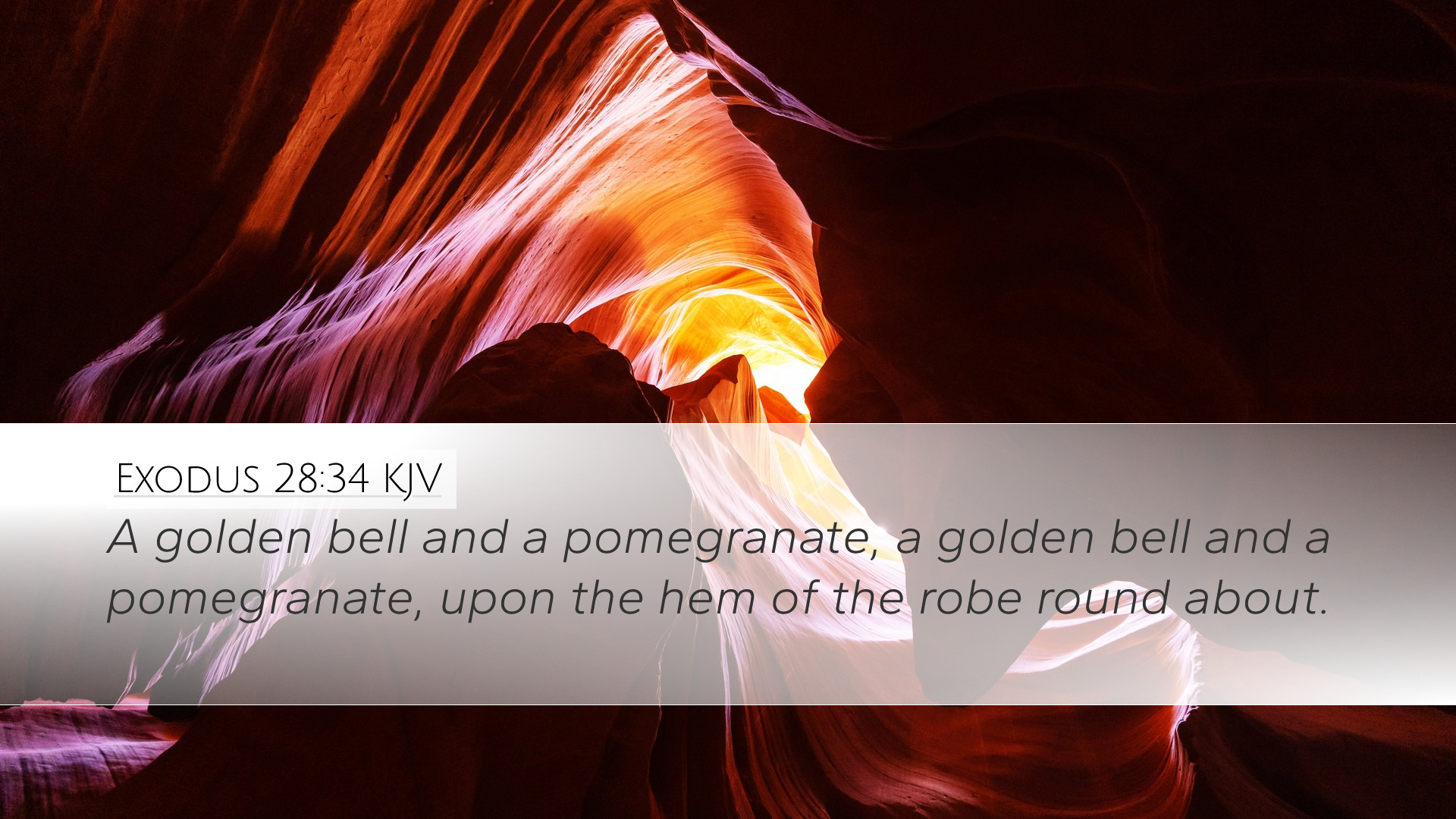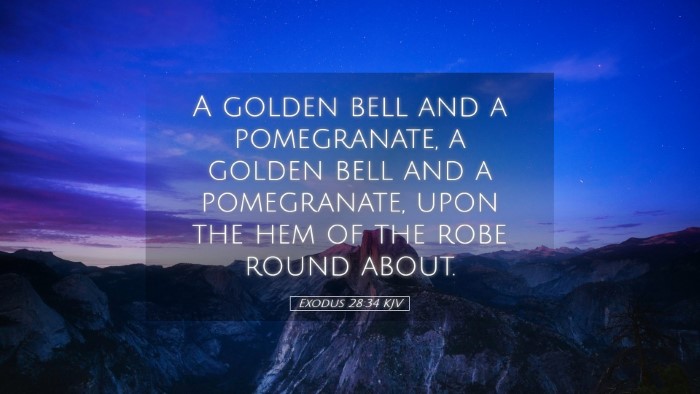Exodus 28:34 Commentary Summary
Bible Verse: Exodus 28:34 - "And a golden bell and a pomegranate, a golden bell and a pomegranate, upon the hem of the robe round about." (KJV)
Introduction
Exodus 28 contains detailed instructions concerning the garments of the high priest, emphasizing their significance in relation to worship and the presence of God. The specific mention of the golden bells and pomegranates on the hem of the robe, as outlined in verse 34, invites profound theological reflection and offers insights into the nature of the priestly function and the holiness associated with serving before the Lord.
Symbolism of the Golden Bells
The golden bells signify the presence and activity of the high priest during his service, particularly when entering the holy place. They served two main purposes:
- Proclamation of Holiness: The sound of the bells would indicate that the priest was actively ministering in the sanctuary, reminding those outside of the serious, sacred nature of his duties. Matthew Henry notes that the sound emphasizes the holiness required in approaching God.
- Awareness of God’s Presence: The bells served to assure the people of Israel that their high priest was fulfilling his intercessory role. Albert Barnes remarks on the need for the people to be reminded of their mediator’s ongoing work, stressing the importance of audible signs in worship.
Significance of the Pomegranates
Pomegranates were commonly associated with fruitfulness, abundance, and the blessings of the covenant. Adam Clarke elaborates on several interpretations:
- Symbol of Fertility: The pomegranate's many seeds symbolize the multitude of God’s people, reflecting His covenant promise to multiply them. This association with fruitfulness mirrors God’s intention for Israel as a nation to bring forth His glory.
- Representation of Righteousness: Further, the pomegranates start with a solid outer shell, under which lies the sweet and nourishing seeds, symbolizing righteousness that stems from divine wisdom and holiness. This connection emphasizes the high priest's role in bringing the people into a right relationship with God.
The Interwoven Imagery
The combination of bells and pomegranates on the hem of the high priest's robe signifies the relationship between worship and character. The bells announce ministry, while the pomegranates symbolize the fruits of righteousness. Together they illustrate an essential truth for believers: authentic worship produces a fruitful life.
As Henry notes, this imagery provides a profound lesson for modern Christians, highlighting the expectation that a life dedicated to God will bear spiritual fruit, evidenced by good works and the holiness of character. The sound of the bell prompts reflection on our own ministerial callings and the fruitfulness that should accompany our service to God and others.
Theological Reflections for Pastors and Ministers
For pastors and ministers, Exodus 28:34 serves as a reminder of the seriousness of their roles as spiritual leaders. The bells represent the call to be attentive in ministry, actively engaging in worship that is both audible and visible, ensuring that their congregations recognize the ongoing work of Christ as our High Priest. The pomegranates challenge leaders to cultivate spiritual fruit, reflecting their devotion and service to God's people.
Conclusion
In considering Exodus 28:34, the integration of the golden bells and pomegranates encapsulates a holistic view of worship that resonates with the historical, practical, and spiritual dimensions of the Christian faith. It invites believers to reflect on their approach to God, reminding them of the holiness required in his presence, the intercession of Christ, and the resultant life that should yield fruit in service and holiness.


